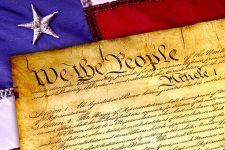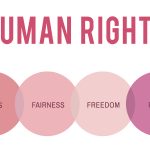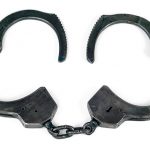Queensland Moves Towards a Bill of Rights

Queensland Premier Annastacia Palaszczuk has announced the state will be moving towards a human rights charter, with a view to creating a bill of rights.
The Labor Party leader did not explain the finer points of the proposal, but said it will be modelled on the Victorian Charter of Human Rights and Responsibilities Act 2006.
However, Ms Palaszczuk may find it difficult to get the new law through the finely balanced minority parliament, and will likely need to make concessions to sure-up the votes of crossbenchers.
Led by independent MP Peter Wellington, the move towards a Bill of Rights has gained momentum since Premier Campbell Newman introduced a number of draconian laws during his time in government, including harsh anti-association laws.
Ms Palaszczuk promised the proposal to Mr Wellington in exchange for his support when the January 2015 election delivered a hung parliament.
The implications
A Bill of Rights would impose duties on the parliament, executive and judiciary to consider the listed rights in their actions and decisions.
Legislation in the ACT and Victoria outlines the basic rights and responsibilities of residents, including the right to be treated equally, to be safe from violence and abuse, and to have their privacy respected.
Proposed laws would need to be checked against the Charter and require a Statement of Compatibility, informing parliament how it may affect the listed rights. By doing this, the legislation would act as a check on parliamentary power.
If a proposed law may curtail the rights set out in the Charter, the Statement of Compatibility must explain how and why. The Supreme Court would be empowered to issue a declaration of inconsistent interpretation, which would require the relevant government minister to reconsider and possibly amend the proposed law.
However, the court would not have the power to strike down legislation for incompatibility – parliament would still have the final say.
Nevertheless, the process would enhance transparency and accountability as laws could not be passed under the noses of voters without proper consultation, and the government of the day would risk losing votes by passing laws which infringe citizens’ rights.
Support for the legislation
A number of commentators have said that the Victorian and ACT Acts have gone some way towards protecting rights in those jurisdictions. “When governments have to take into account human rights then it has been shown that the laws they make, the services they deliver and the way the courts operate are improved,” said James Farrell, Director of Community Legal Centres Queensland.
It is argued that Bills of Rights partially overcome deficiencies in Commonwealth Constitution, which expressly offers protection for just five rights:
- The right to vote (Section 41),
- Protection against acquisition of property on unjust terms (Section 51 (xxxi)),
- The right to a trial by jury for criminal cases in the higher courts (Section 80),
- Freedom of religion (Section 116), and
- Prohibition of discrimination on the basis of State of residency (Section 117).
UNICEF Report Card 13 found that many children in Australia are falling behind in key indicators relating to education and health, while juvenile detention is increasing. For this reason, UNICEF has come out in support of a human rights act for Queensland.
Australian Lawyers for Human Rights has noted that Queensland is the only Australian jurisdiction with just one-house Parliament, resulting in less checks on power and a higher risk of government legislation being passed that infringes on basic rights.
Mr Farrell believes vulnerable and disadvantaged Queenslanders would see the most benefit. “People with disabilities, people accessing government assistance, people appearing in front of the court will be better off from the introduction of these laws,” he said.
Opposition
A number of prominent lawyers, including the state’s former solicitor-general, Walter Sofronoff QC, have criticised the proposal for putting the government’s agenda in the hands of advocates and judges.
“By entrenching a constitutional ‘guarantee’ of human rights, the citizens of Australia would instantly surrender their own political control over important laws in favour of unelected judges,” he said.
NSW Solicitor-General, Michael Sexton SC, believes such an Act would create a “lawyers picnic.” He remarked that the extensive training of judges does not make them more qualified to answer political and philosophical questions regarding the balancing of competing rights. He added that enacting such a law, “… would mean that when a government selects a judge, the vital question will be, as it always is in the US, “What are this person’s political views”, rather than “What is this person’s reputation as a legal thinker and as a person of ¬integrity”.
Mr Sofronoff believes it is foolish to emulate a Bill of Rights-type system like in the US, a country where such “protections” have resulted in high rates of gun violence and other problems.
But supporters of the legislation note that no such problems have befallen the ACT or Victoria; rather, they have merely enhanced transparency and made government’s think twice before passing draconian legislation which infringes on personal rights.






